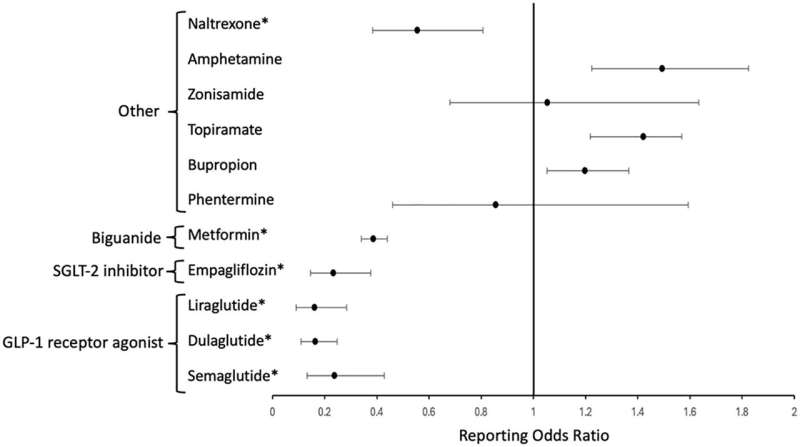This article has been reviewed according to Science X's editorial process and policies. Editors have highlighted the following attributes while ensuring the content's credibility:
fact-checked
proofread
Study finds inverse association between weight loss drugs and multiple sclerosis

Initially, diabetes drugs like Ozempic and Wegovy showed promise in weight loss and have subsequently been marketed and widely used for weight loss. Now these medications are showing promise as a possible treatment for multiple sclerosis.
A study, "Exploring the association between weight loss-inducing medications and multiple sclerosis: insights from the FDA adverse event reporting system database," published in the journal Therapeutic Advances in Neurological Disorders, highlights the possible protective effect of some diabetes/weight loss medication against multiple sclerosis.
The analysis found an inverse relationship between the use of weight loss medications including semaglutide, dulaglutide, empagliflozin and metformin and MS development. While not all weight loss medications showed the same favorable effect, it seems that the effects of these medications go beyond weight loss to possible anti-inflammatory and/or neuro-protective results.
Accordingly, researchers are studying the effect of these medications on MS as the main or supplementary treatment. Repurposing drugs that are already approved can reduce the time and cost of development, as an approved medication's safety profile has already been established.
Multiple studies are suggesting obesity to be a risk factor for developing multiple sclerosis. We still don't know the exact mechanism, but obesity is a well-known driver of chronic inflammation in the body, which can help set the stage for the development of MS, an inflammatory disorder affecting the brain and spinal cord.
More information: Afsaneh Shirani et al, Exploring the association between weight loss-inducing medications and multiple sclerosis: insights from the FDA adverse event reporting system database, Therapeutic Advances in Neurological Disorders (2024). DOI: 10.1177/17562864241241383




















